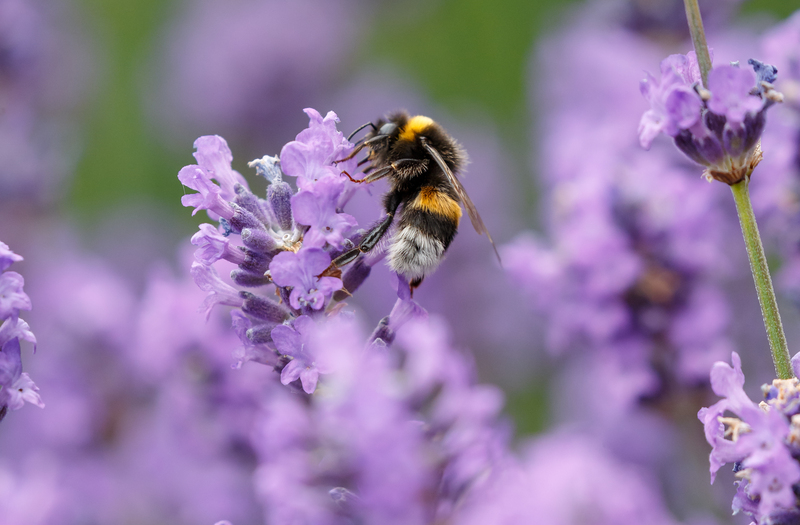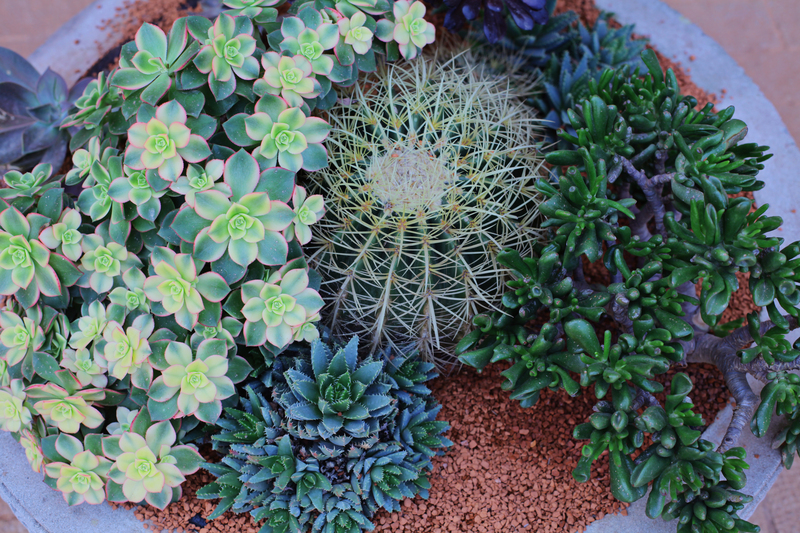Harvesting Soil Wealth from Waste
Posted on 21/06/2025
Harvesting Soil Wealth from Waste: A Comprehensive Guide
Harvesting soil wealth from waste is a powerful, sustainable solution for modern agriculture, urban gardening, and waste management. As the global population grows and natural resources become ever more precious, transforming organic and inorganic waste into nutrient-rich resources is no longer just a trend--it's a necessity. This comprehensive article explores various methods, benefits, and the future of enriching your soil using waste materials, providing actionable steps to maximize your garden's potential while reducing your environmental footprint.
Understanding the Concept: How Waste Becomes Soil Wealth
Before digging into the details, let's clarify what it means to harvest soil wealth from waste. The concept revolves around converting otherwise discarded materials--like food scraps, yard clippings, agricultural residues, and even some household byproducts--into a valuable soil amendment. This practice not only reduces landfill burden but also returns essential nutrients to the earth, closing the natural nutrient loop.
Organic Waste
- Kitchen scraps: Vegetable peels, coffee grounds, eggshells.
- Yard waste: Grass clippings, leaves, pruned branches.
- Agricultural by-products: Rice husks, straw, manure.
Inorganic Waste
- Biochar: Produced from the pyrolysis of plant residues.
- Mineral waste: Rock dust and specific industrial by-products (with caution).

The Science Behind Soil Enrichment from Waste
Turning waste into soil wealth involves several biological, chemical, and physical processes that restore or increase soil fertility. At the heart of this transformation are microorganisms such as bacteria, fungi, and actinomycetes. These organisms break down complex organic materials into simpler compounds that plants can readily absorb.
Key benefits of this process include:
- Increased soil organic matter, which enhances soil structure, aeration, and water retention.
- Enhanced nutrient cycling--nitrogen, phosphorus, potassium, and trace minerals become available to plants over time.
- Suppression of soil-borne diseases due to improved microbial diversity.
Methods for Harvesting Soil Wealth from Waste
1. Composting
Composting is the most popular and accessible method for converting organic waste into fertile soil amendments. Microbes decompose organic matter in the presence of oxygen, creating humus--a dark, crumbly substance teeming with nutrients. Here's how you can create compost at home or on your farm:
- Choose a spot: Select a shady area that is convenient yet unobtrusive.
- Layer materials: Alternate green (nitrogen-rich) and brown (carbon-rich) materials.
- Green: vegetable peels, coffee grounds, lawn clippings.
- Brown: dry leaves, cardboard, straw.
- Maintain moisture: Keep the pile as damp as a wrung-out sponge--but not soaked.
- Aerate regularly: Turn the pile weekly to ensure oxygen reaches all materials.
- Wait and harvest: In several weeks to months, your compost will be ready to enrich your garden beds.
2. Vermicomposting
For those with limited space or seeking faster results, vermicomposting is an excellent option. Special red wiggler worms (Eisenia fetida) eat organic waste and excrete castings rich in plant-available nutrients.
- Set up a worm bin: Use a ventilated bin filled with moist bedding (shredded newspaper or coconut coir).
- Add kitchen scraps: Avoid meats and dairy, which can attract pests.
- Harvest castings: Within 2-3 months, scoop out the rich black castings and top-dress plants or mix into soil.
3. Bokashi Fermentation
Bokashi is a Japanese technique that rapidly ferments kitchen waste using beneficial microbes in anaerobic conditions. Unlike traditional compost, bokashi can process dairy, meat, and oily foods.
- Add waste to bucket: Layer kitchen scraps with bokashi bran.
- Seal tightly: Exclude air and allow to ferment for 10-14 days.
- Bury in soil: After fermentation, bury the pre-compost in your garden, where it quickly breaks down, nourishing the soil.
4. Biochar Amendment
Biochar is a stable form of carbon created by heating organic material in a low-oxygen environment (pyrolysis). Adding biochar to soil can:
- Improve water and nutrient retention, especially in sandy soils.
- Serve as a lasting habitat for beneficial microflora.
- Sequester carbon for decades, mitigating climate change.
To use, simply mix crushed biochar into your compost or soil. Activate it first by soaking in compost tea or manure slurry, ensuring maximum benefit to soil life.
5. Sheet Mulching (Lasagna Gardening)
Sheet mulching, also known as lasagna gardening, is an easy way to convert yard waste and cardboard into lush soil. Stack alternating layers of brown and green materials right on top of the ground, then let nature do the work.
- Suppresses weeds and retains moisture.
- Encourages earthworm activity, naturally aerating soil.
- Enriches soil over several months, producing productive growing beds with minimal effort.
Types of Waste for Building Soil Wealth
Safe and Effective Waste Materials
- Fruit and vegetable peelings
- Coffee grounds and filters
- Tea bags (ensure they're plastic-free)
- Eggshells
- Grass and plant clippings
- Dried leaves and shredded branches
- Paper and cardboard (undecorated, non-glossy)
- Wood ash (in moderation)
- Livestock manure (aged or composted)
What to Avoid
- Diseased plants
- Pet feces (may contain harmful pathogens)
- Cooked foods (can attract pests)
- Grease, fats, and oils (slow to break down)
- Glossy or colored paper, which may contain toxic inks
Environmental and Economic Benefits of Harvesting Soil Wealth
1. Reducing Landfill Waste
Organic waste makes up a significant proportion of municipal landfill content. By redirecting waste to composting and soil-building processes, municipalities and individuals can drastically reduce landfill pressures and the emission of greenhouse gases like methane.
2. Enhancing Soil Fertility
Homemade compost and soil amendments supply nutrients tailored to your plants' needs, improve soil texture, and fuel diverse soil ecosystems. Healthier soil translates directly to higher crop yields, lush ornamental gardens, and more resilient landscapes.
3. Saving Money
- Reduced fertilizer costs: Compost and biochar replace expensive chemical fertilizers.
- Decreased water use: Improved soil holds moisture longer, lowering irrigation needs.
- Lower waste disposal fees: Less trash hauled to landfill means reduced municipal costs.
4. Resilience Against Climate Change
Rich, organic soils act as carbon sinks, pulling carbon dioxide from the air and storing it in stable forms beneath the ground. Harvesting soil wealth from waste is, therefore, a valuable tool in the fight against climate change.
Challenges and Solutions in Utilizing Waste for Soil Wealth
Common Challenges
- Space constraints for composting in urban settings
- Concerns about odors or pests
- Lack of community or municipal compost facilities
- Inconvenience or perceived extra labor
Practical Solutions
- Use compact bin systems or community drop-off programs for city dwellers
- Ensure proper balance of greens (nitrogen) and browns (carbon) to minimize odors
- Cover exposed food scraps with mulch or finished compost
- Partner with neighbors or local organizations for cooperative composting
- Educate communities about the environmental and economic benefits
How to Get Started: Step-by-Step Guide for Beginners
1. Choose Your Method
- Compost pile or bin for large yards
- Vermicomposting for apartments or small spaces
- Bokashi for processing all kitchen scraps
2. Gather and Prepare Waste Materials
- Collect kitchen and yard waste according to the safe/warning lists above
- Shred large pieces to speed up decomposition
3. Maintain Your System
- Turn your compost regularly for aeration
- Check moisture and adjust as necessary
- Harvest your finished compost or vermicast and apply to garden beds
4. Apply and Observe
- Mix compost into soil or use as mulch
- Monitor plant growth and adjust feeding as needed
Innovative Approaches: Community and Industrial Scale Solutions
While home and garden composting is vital, large-scale change requires community and industrial efforts:
- Community compost cooperatives allow neighbors to pool resources and share finished compost.
- Municipal green waste pickup and centralized facilities divert tons of organic matter from landfill.
- Industrial-scale anaerobic digesters produce both compost and biogas energy.
- Partnerships with schools and local businesses foster environmental stewardship and education.
Case Studies: Real-World Success in Harvesting Soil Wealth from Waste
1. Urban Gardens in New York City
Community gardens across NYC rely on compost from food scraps collected at greenmarkets, producing thousands of pounds of urban-grown produce and fostering vibrant community spaces.
2. Smallholder Farms in Kenya
Biochar made from crop residues enriches depleted soils, leading to significant yield increases and improved land resilience against drought, all while offsetting carbon emissions.
3. School Composting Programs in Australia
Students learn the value of recycling organic waste into healthy soil, supporting edible schoolyard gardens and developing a generation of environmentally conscious citizens.

Future Prospects: Towards a Circular Economy in Agriculture
A truly sustainable food and farming system will view waste as a valuable resource, not a problem. Cutting-edge research is exploring everything from insect-based composters to advanced microbial inoculants and AI-powered waste sorting. By supporting and implementing these technologies, individuals and societies will not only harvest soil wealth from waste but also build a resilient, equitable future for all.
Conclusion: Reap the Rewards--Start Harvesting Soil Wealth from Waste
Transforming waste into life-giving soil is within reach for everyone, from backyard gardeners to commercial farmers. By adopting composting, vermicomposting, and innovative waste recycling methods, you foster a healthier environment, nourish your crops, and save money. Take the first step today--your soil, and the planet, will thank you.
Remember: Waste isn't worthless; it's the key to a thriving, sustainable soil ecosystem. Start turning your trash into treasure. Harvest soil health and wealth from waste!
Latest Posts
Transforming Gardens into Dog-Friendly Environments
Ensuring Your Garden's Survival During Adverse Weather
Green Up Shadowy Spaces with Evergreen Climbers for Shade

